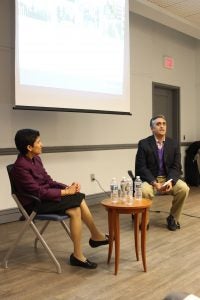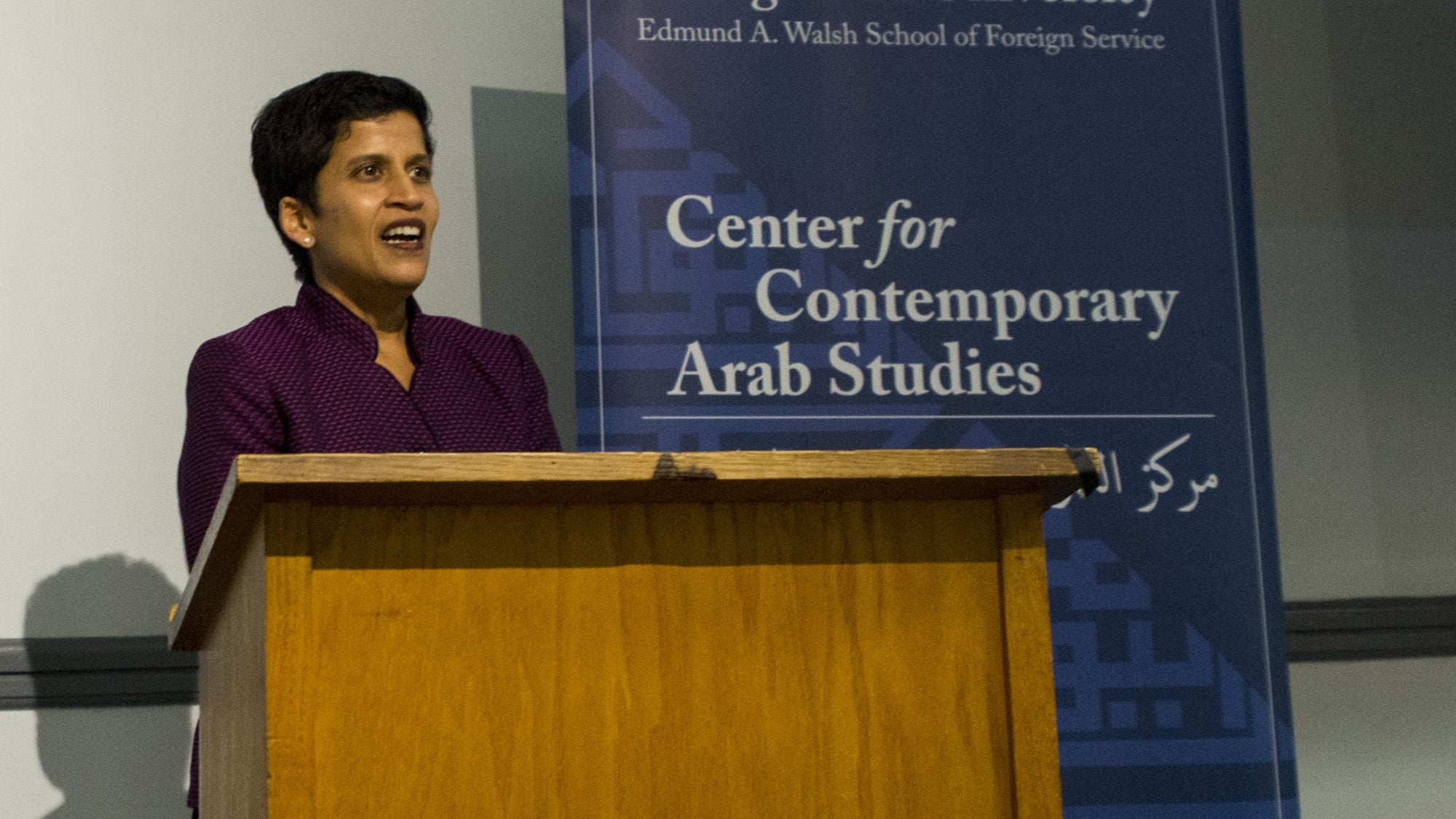The Bridge Initiative and Center for Contemporary Arab Studies (CCAS) partnered to host Shoba Wadhia on February 22, 2018, to unpack the three Muslim bans implemented by the Trump administration over the course of 2017.

Wadhia, a Georgetown Law alumna, is currently a professor at Penn State Law and the Director of the school’s Center for Immigrants’ Rights Clinic. She’s been at the forefront of translating and analyzing the legal implications of the three controversial executive orders on immigration.
Wadhia discussed Versions 1, 2, and 3 of the travel bans, which initially placed a ban on entry into the United States for citizens of seven Muslim-majority countries and barred refugees from entering the United States. The most recent iteration of the policy includes Syria, Libya, Iran, Yemen, and Somalia, and added Chad, North Korea, and Venezuela to the list of banned countries.
“The theory of the administration was to show that this wasn’t really a policy that was targeting Muslims. The reality is, we don’t have a large number of North Koreans coming into the United States, and the exclusion on Venezuelans is so narrow,” Wadhia said. The other six countries are Muslim-majority.
“What we do know is the ban today is impacting people and families in profound ways. However the court rules, we know that there has been some type of victory and success in the resistance. There’s been great resistance outside of the courts against these bans, and a powerful message that these bans are really inconsistent with American identity and who we are,” said Wadhia.
Her presentation was followed by a discussion with Arsalan Iftikhar, a human rights lawyer and Senior Research Fellow at the Bridge Initiative. Iftikhar explained some of his own emotional experiences with Islamophobia and the bans, and reminded the audience that “it will be somebody else tomorrow, which is why we have to stand up for Muslims today.”
